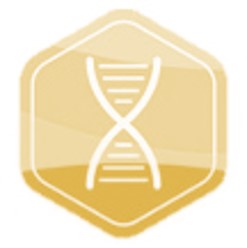Immunomics Services
Single-Cell Epigenomics Service for Immune Cells
Epigenetic changes have been associated with aspects of immune cell development, activation, and differentiation. A genome-wide epigenetic landscape has been established for some immune cells, including tissue-resident macrophages and blood-derived cells, including T cells. CD Genomics offers epigenomics services for immune cells to advance our clients' insights into the general rules of epigenetic regulation in the immune process.
Epigenetic Mechanisms Involved in the Immune Process
In terms of single-cell analysis, the transcriptome and protein levels of immune cells have been explored. However, the characteristics of chromatin accessibility, cis-regulatory elements, and trans-factors driving epigenetic cellular states that are critical for the transcriptional regulation of genes at critical stages of the immune process remain unclear.
- DNA Methylation
Based on the latest developments in next-generation sequencing technology, genome-wide DNA methylation studies can be performed at the single-cell level. DNA methyltransferase 3B targets the promoter of PPARG, a key transcription factor for alternative activation of macrophages, leading to PPARG repression, which results in a pro-inflammatory state of cells, suggesting a role for DNA methylation in the activation of immune cells. - Histone Modifications
Alterations in histone modification patterns have been accompanied by activation processes in various immune cells. During the transition from naive to germinal center B cells, induced genes obtain activated histone marks, such as H3K4me and H3ac, while silenced loci lose these marks. In contrast, genes that become downregulated in effector CD8+ T cells lose activated histone marks and gain suppressive H3K27me3 at adjacent loci. - Chromatin Accessibility and Looping
Regulatory elements can be located upstream of the gene transcription start site and must be brought into physical proximity to the gene promoter through chromatin loops to influence gene expression. Thus, chromatin recycling is an epigenetic mechanism that regulates gene expression. A typical example of such regulation within the immune system is the recombination of genes encoding antigen receptors. - Non-coding RNA (ncRNA)
Based on characteristics such as size and function, ncRNAs are classified into different categories. Differentiation and activation of immune cells are accompanied by dramatic changes in ncRNA expression. For example, TLR2 stimulates macrophages to induce the long intergenic ncRNA lincRNA-Cox2, which regulates the expression of IL-6 and CCL5 or downregulates linc1992 (or THRIL), which affects the expression of TNF-α.
Our Services
Epigenetics has an important role in cells of the innate and adaptive immune system. The responsiveness to environmental cues and the reversibility of the epigenetic landscape allows for plasticity in the transcriptional programs of already differentiated cells. CD Genomics offers professional single-cell epigenomics services for immune cells to help our clients decipher the immune progress.

Single-cell DNA Methylome Analysis Services
We offer bisulfite conversion-based methods being used for single-cell methylation sequencing, including whole genome bisulfite sequencing (WGBS), where the entire genome is analyzed, and reduced representation bisulfite sequencing (RRBS), in which regions with high CpG content (CpG islands) are enriched and sequenced.

Single-cell Histone Modification Analysis Services
We have a variety of standard antibodies that have been used for single-cell histone modification analysis, including H3K4me1, H3K4me3, H3K9me3, H3K27me3, H3K36me3, H3K27Ac, and CTCF. In addition, we can use monoclonal antibodies labeled against other histones, after performing titrations to determine the correct concentration for the experiment.

Single-cell Chromatin Accessibility Analysis Services
Single-cell ATAC-Seq (scATAC) relies on the transposase-mediated insertion of sequencing primers into open chromatin regions. Our scATAC-Seq service can examine chromatin accessibility in thousands of cells in parallel, allowing the examination of subpopulations of cells in heterogeneous populations.
Why Choose Us
Based on years of epigenomic research, CD Genomics provides clients with many types of single cell epigenomics analysis services to help them explore multiple immune processes. Please contact us for more information.
